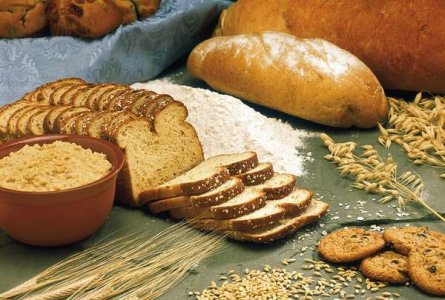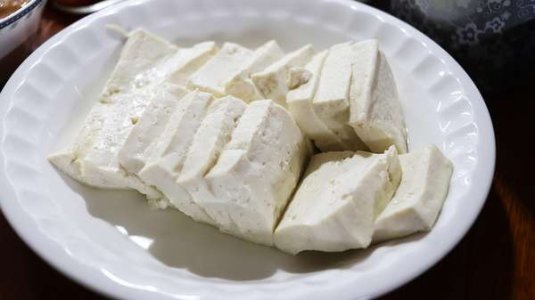Is ultra-processed food 'healthy'? A new study (mostly) thinks so!
Picture this: After a long day, you’ve entered your kitchen hoping to find solace in a home-cooked meal.
After all, there's nothing like the aroma of home cooking, wouldn't you agree?
There, on the shelf, a can of baked beans stares back at your tired eyes. It seems like an appealing option. However, our instincts from conversations about 'fresh is best' tempt us to pass on this can.
A similar battle often unravels in our heads when it comes to ultra-processed foods!
The United States Department of Agriculture (USDA) recently threw a curveball with a seven-day meal plan, primarily featuring ultra-processed foods, that scored surprisingly well in terms of nutritional content.

Believe it or not, processed canned goods like baked beans seem to have made a nutritional breakthrough.
What is ultra-processed food, you ask? Well, it's the Pandora's box of the food industry.
Often, it refers to items that have been significantly worked over by the industry—from quick-fix microwave meals to bakery delights and soft drinks.
But here's a curveball for you. Did you know that seemingly healthy items like whole wheat bread, nonfat milk, tofu, and the humble canned fish might fall into this ultra-processed classification?
The complexities of categorising foods as ultra-processed become apparent with these examples, an issue highlighted by Dr Julie M. Hess, one of the individuals behind the scientific curtain at the USDA’s Grand Forks Human Nutrition Research Center.
She said, ‘Our study found that several nutrient-dense foods like whole wheat bread, nonfat milk, canned fruit, tofu, fruit juice, and canned fish could be considered ultra-processed.’
The seven-day diet plan devised by these scientific sleuths at USDA yielded intriguing results.
To scratch the surface, we turn to a reliable companion—the Healthy Eating Index (HEI), the yardstick of dietary quality.

Surprisingly, this ultra-processed menu plan scored 86 out of 100, with 91 per cent of the calories derived from these processed foods.
It significantly outperformed the typical score of the average American diet, a mere 59.
Despite its high HEI score, this 'processed' diet fell short of essential nutrients—Vitamin D and E—and didn’t do too well on the sodium and whole grains.
So, what dishes got the honour of being part of this plan? Hearty black bean soup, porridge, baked potato, an oriental tofu stir fry, and a steak dinner.
Interestingly, simpler, less processed alternatives like applesauce, canned peas, and canned mushrooms didn’t make the list.
Similarly, popular comfort foods such as French fries, pickles, banana chips, and the increasingly trendy plant-based 'meat' burgers were left out in the cold.
A question that begs to be asked here is: Is an ultra-processed diet practical?
Michelle Routhenstein, a cardiology dietitian at EntirelyNourished.com, raises a solid question.
Identifying the additives that categorise seemingly harmless foods as ultra-processed requires a keen eye.
Routhenstein said, ‘It is also important to note that nutrient-dense foods like beans and legumes, for instance, can be considered ultra-processed due to the citric acid or additives added to preserve it. And while this is considered ultra-processed, they still confer health benefits that we need to evaluate in the big picture as well.’
This brings us to the big reveal—the dark underbelly of ultra-processed foods.
Numerous health implications are associated with ultra-processed diets, a worrying factor expressed by Dr Marialaura Bonaccio of the Italy-based IRCCS Istituto Neurologico Mediterraneo Neuromed.
She said, ‘The well-documented adverse health effects of UPF [ultra-processed food] are not exclusively related to the poor nutritional content of these foods, but are likely triggered by non-nutritional factors, such as food additives, contaminants from plastics, alteration to the food matrix, etc.’
Similarly, Routhenstein presents a wake-up call, highlighting how ultra-processed foods increase the risk of heart disease, kidney disease, and stroke.
‘Ultra-processed foods, regardless if they are following a vegan, vegetarian diet, etc., cause an increase in cystatin c, an inflammatory biomarker that increases risk of heart disease, kidney disease, and stroke.’

While the scale seems to tilt towards avoiding ultra-processed foods, we should never forget: everyone’s nutritional needs, availability of resources, and personal goals are unique.
Members, considering the potential risks associated with ultra-processed foods, would you be willing to follow a diet that primarily consists of such foods if it scored well on a nutritional index?
After all, there's nothing like the aroma of home cooking, wouldn't you agree?
There, on the shelf, a can of baked beans stares back at your tired eyes. It seems like an appealing option. However, our instincts from conversations about 'fresh is best' tempt us to pass on this can.
A similar battle often unravels in our heads when it comes to ultra-processed foods!
The United States Department of Agriculture (USDA) recently threw a curveball with a seven-day meal plan, primarily featuring ultra-processed foods, that scored surprisingly well in terms of nutritional content.

Ultra-processed food refers to highly industrialised products that often contain additives, preservatives, and artificial ingredients. Image by FotoshopTofs from pixabay
Believe it or not, processed canned goods like baked beans seem to have made a nutritional breakthrough.
What is ultra-processed food, you ask? Well, it's the Pandora's box of the food industry.
Often, it refers to items that have been significantly worked over by the industry—from quick-fix microwave meals to bakery delights and soft drinks.
But here's a curveball for you. Did you know that seemingly healthy items like whole wheat bread, nonfat milk, tofu, and the humble canned fish might fall into this ultra-processed classification?
The complexities of categorising foods as ultra-processed become apparent with these examples, an issue highlighted by Dr Julie M. Hess, one of the individuals behind the scientific curtain at the USDA’s Grand Forks Human Nutrition Research Center.
She said, ‘Our study found that several nutrient-dense foods like whole wheat bread, nonfat milk, canned fruit, tofu, fruit juice, and canned fish could be considered ultra-processed.’
The seven-day diet plan devised by these scientific sleuths at USDA yielded intriguing results.
To scratch the surface, we turn to a reliable companion—the Healthy Eating Index (HEI), the yardstick of dietary quality.

These ultra-processed foods are typically low in essential nutrients and high in unhealthy fats, sugars, and salt, making them a less healthy choice when compared to whole and minimally processed foods. Image by allybally4b from pixabay
Surprisingly, this ultra-processed menu plan scored 86 out of 100, with 91 per cent of the calories derived from these processed foods.
It significantly outperformed the typical score of the average American diet, a mere 59.
Despite its high HEI score, this 'processed' diet fell short of essential nutrients—Vitamin D and E—and didn’t do too well on the sodium and whole grains.
So, what dishes got the honour of being part of this plan? Hearty black bean soup, porridge, baked potato, an oriental tofu stir fry, and a steak dinner.
Interestingly, simpler, less processed alternatives like applesauce, canned peas, and canned mushrooms didn’t make the list.
Similarly, popular comfort foods such as French fries, pickles, banana chips, and the increasingly trendy plant-based 'meat' burgers were left out in the cold.
A question that begs to be asked here is: Is an ultra-processed diet practical?
Michelle Routhenstein, a cardiology dietitian at EntirelyNourished.com, raises a solid question.
Identifying the additives that categorise seemingly harmless foods as ultra-processed requires a keen eye.
Routhenstein said, ‘It is also important to note that nutrient-dense foods like beans and legumes, for instance, can be considered ultra-processed due to the citric acid or additives added to preserve it. And while this is considered ultra-processed, they still confer health benefits that we need to evaluate in the big picture as well.’
This brings us to the big reveal—the dark underbelly of ultra-processed foods.
Numerous health implications are associated with ultra-processed diets, a worrying factor expressed by Dr Marialaura Bonaccio of the Italy-based IRCCS Istituto Neurologico Mediterraneo Neuromed.
She said, ‘The well-documented adverse health effects of UPF [ultra-processed food] are not exclusively related to the poor nutritional content of these foods, but are likely triggered by non-nutritional factors, such as food additives, contaminants from plastics, alteration to the food matrix, etc.’
Similarly, Routhenstein presents a wake-up call, highlighting how ultra-processed foods increase the risk of heart disease, kidney disease, and stroke.
‘Ultra-processed foods, regardless if they are following a vegan, vegetarian diet, etc., cause an increase in cystatin c, an inflammatory biomarker that increases risk of heart disease, kidney disease, and stroke.’
Key Takeaways
- The USDA developed a seven-day meal plan largely comprised of ultra-processed foods that score high in nutritional content but fail to meet some dietary needs, such as vitamin D and E.
- The definition of ultra-processed foods remains disputed, with some traditionally seen as healthy potentially falling under this categorisation.
- Some experts argue the adverse health effects of ultra-processed foods result not only from their poor nutritional content but also from non-nutritional factors like food additives and contaminants.
- Despite the high nutritional score of the ultra-processed meal plan, experts continue to advise against consuming ultra-processed foods due to potential health risks.
While the scale seems to tilt towards avoiding ultra-processed foods, we should never forget: everyone’s nutritional needs, availability of resources, and personal goals are unique.
Members, considering the potential risks associated with ultra-processed foods, would you be willing to follow a diet that primarily consists of such foods if it scored well on a nutritional index?







